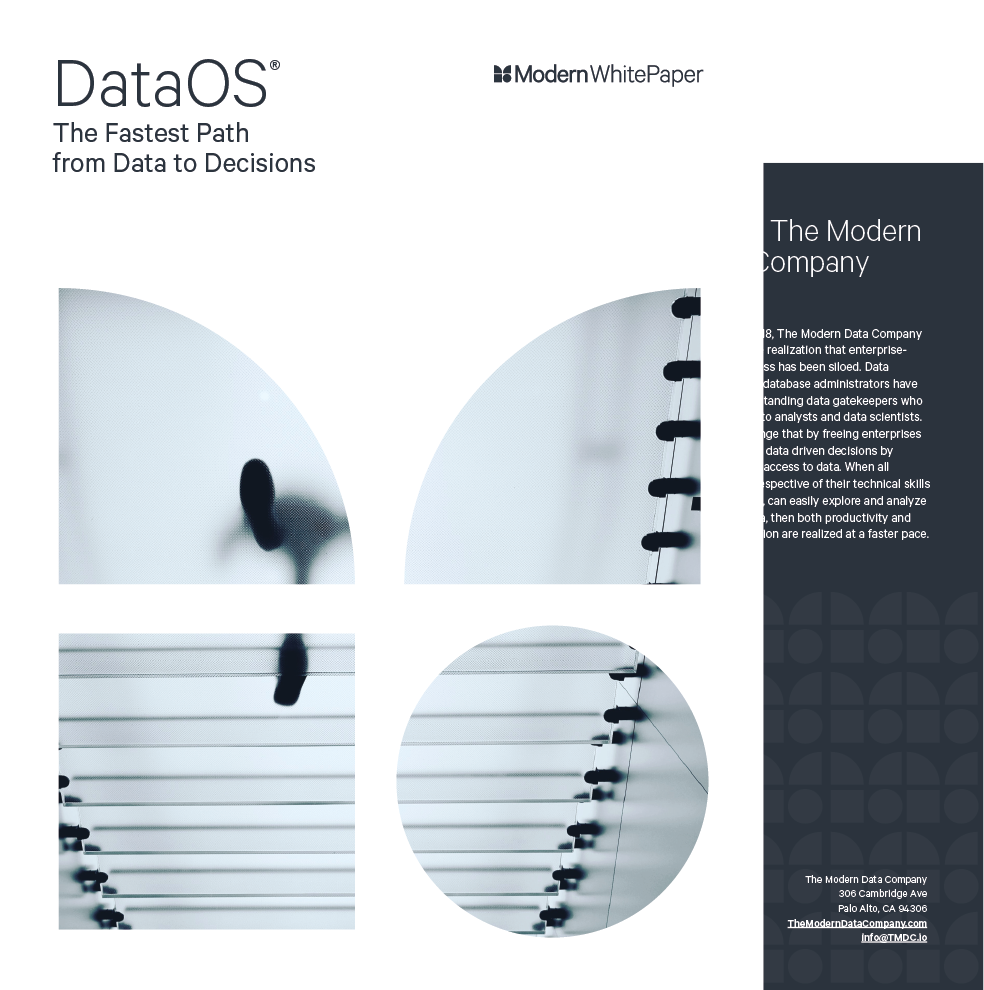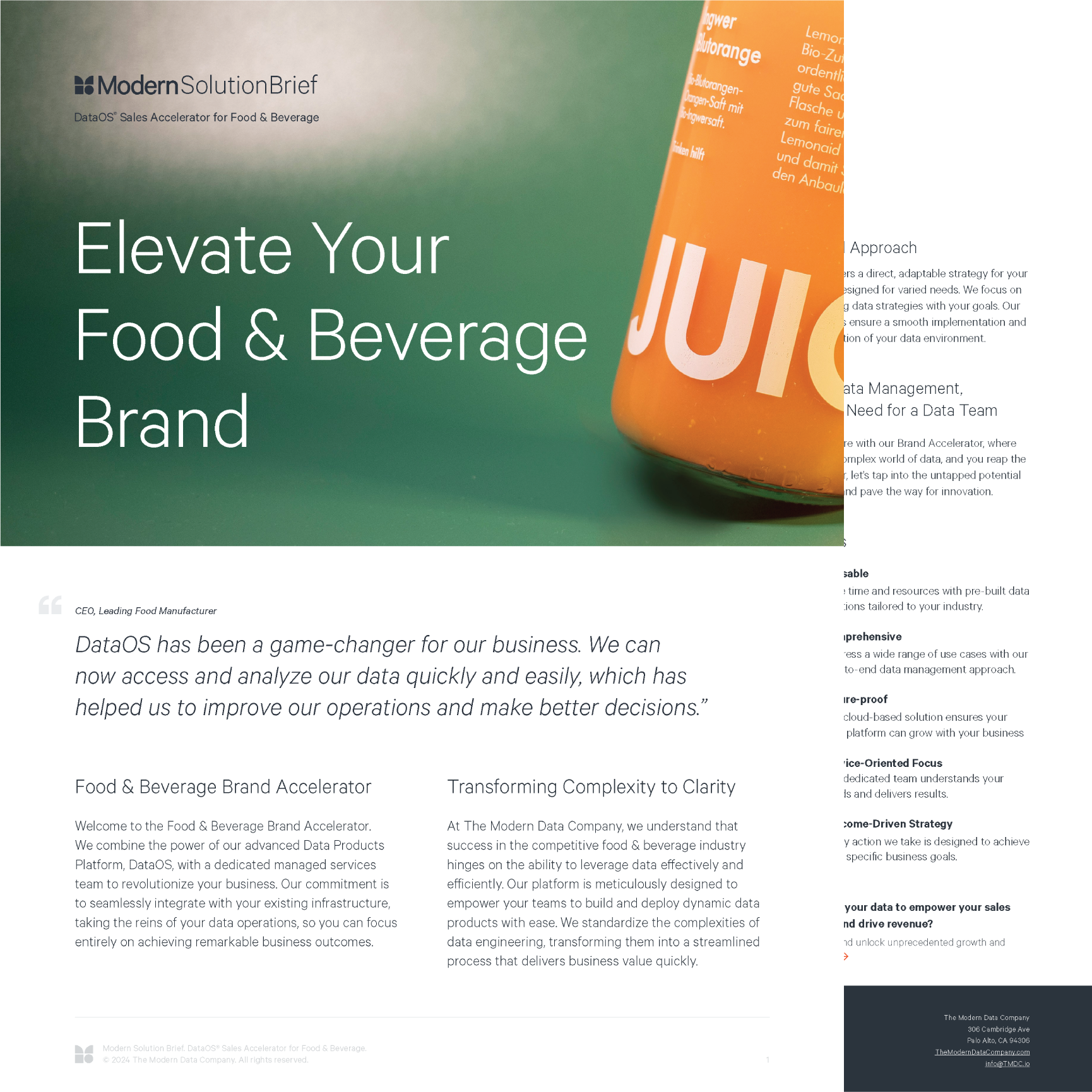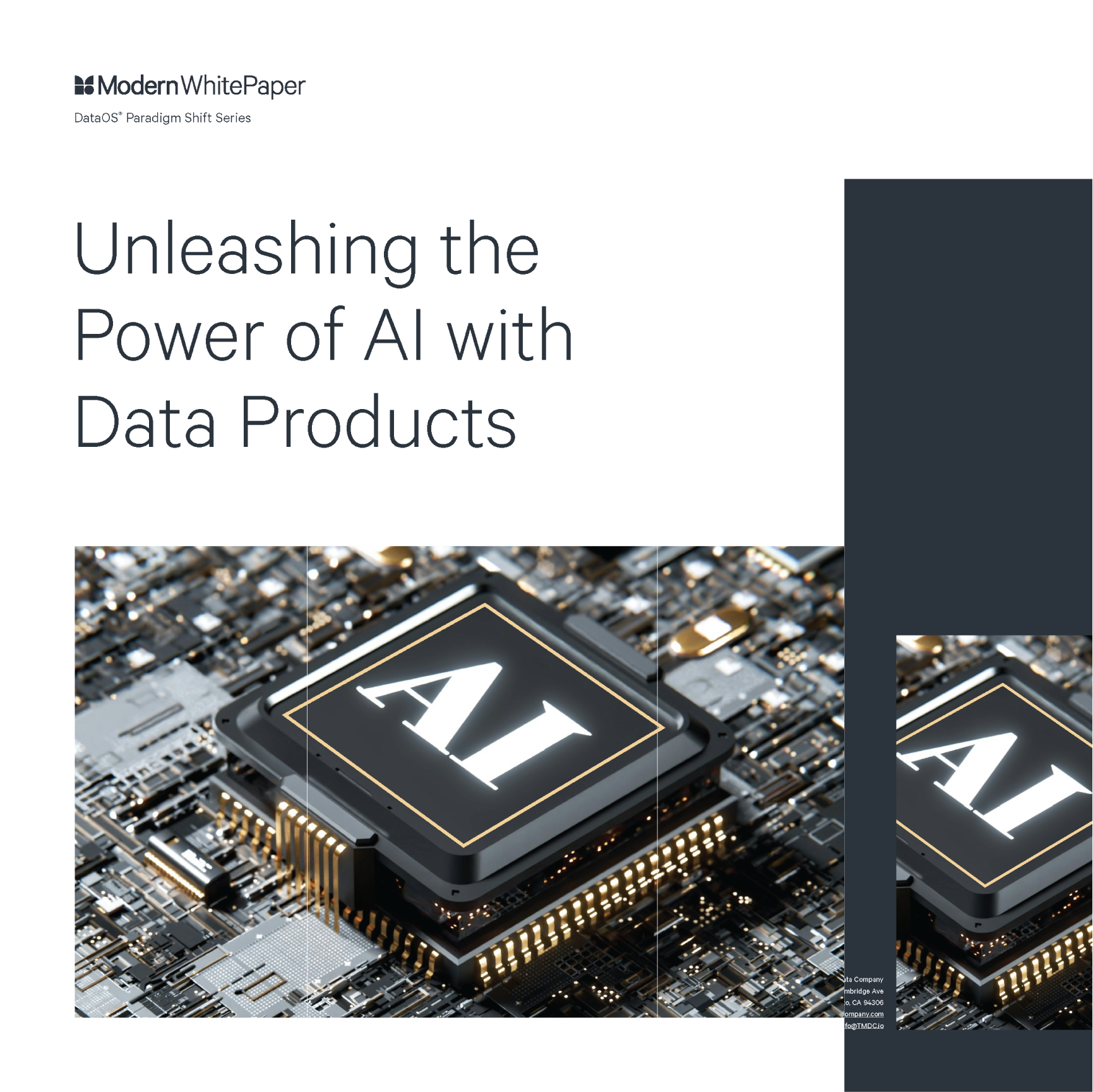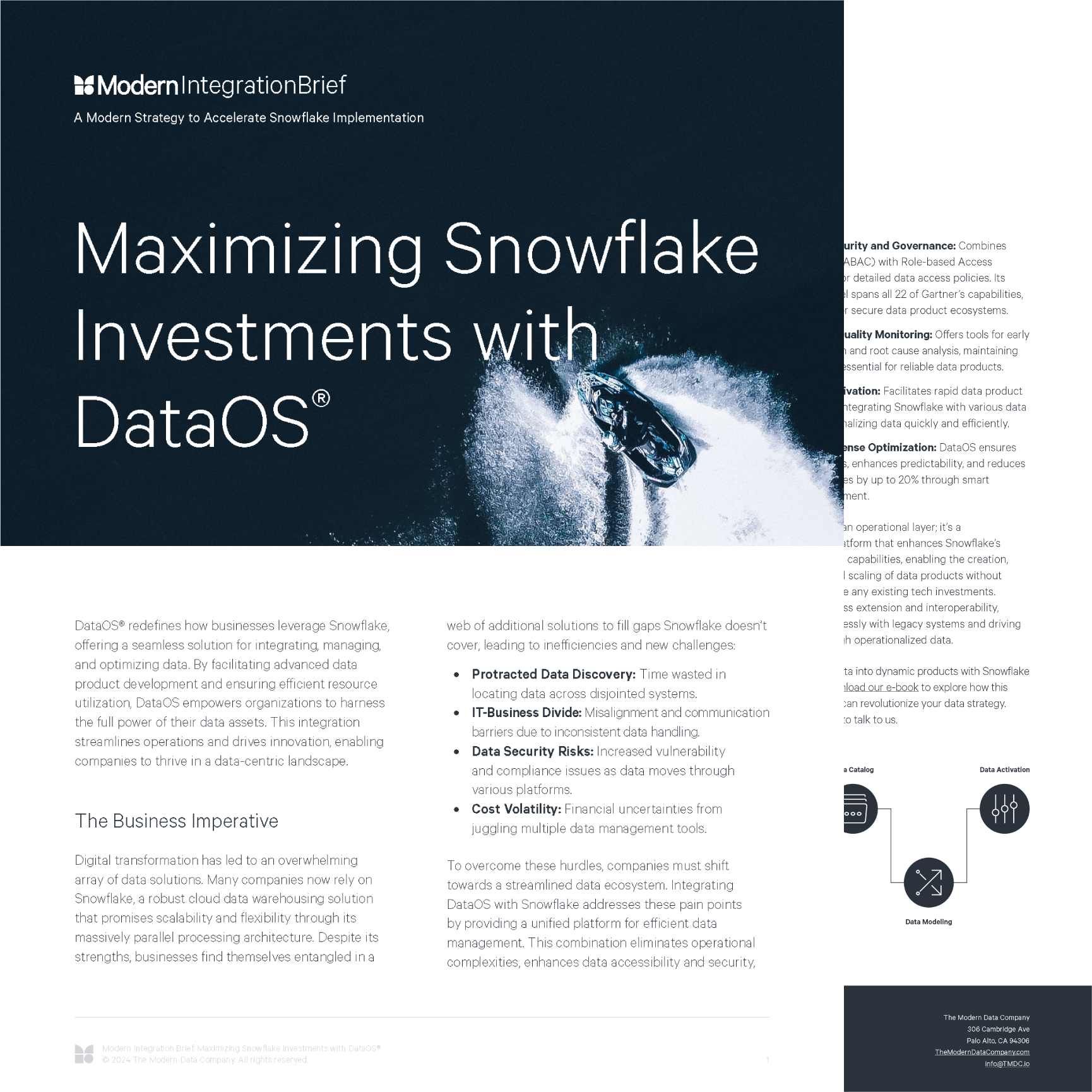
How to drive trusted decisions without changing your current data infrastructure.
Learn more about DataOS® in our white paper.
Companies gather data, invest in tools to make sense of data, and hire talent to prepare and analyze the data. However, it seems that less than 25% of companies have managed to create a data-driven organization. There’s a difference between having data available and using data effectively to drive better business decisions. If a company wants to thrive against competitors that successfully leverage data as a competitive differentiator, it needs to take its data and analytics capabilities to a new level. Let’s examine some important priorities organizations must tackle to become truly data-driven.
Companies can have brilliant data scientists who know how to push machine learning and analytics to their limits. However, those skills will be wasted if nobody on the business team knows how to ask the right questions and if the data science team is unable to communicate the results it uncovers to those stakeholders. It is also necessary today to scale analytical processes to extreme levels to handle what are often real-time (or close to it) requirements across millions of customers, hundreds of millions of transactions, or billions of sensor readings.
The IT-centric approach of focusing on getting data loaded onto platforms and putting tools in place worked initially as a way to get an organization’s analytical capabilities started. Raising analytics to new heights requires the adoption of a data culture centered around making effective use of those tools and technologies, as well as acceptance of data as a necessary component of business decisions. The same survey referenced previously indicated that over 90% of companies believe that failure to transform into a data-driven organization came down to a lack of success in implementing a data culture.
A data culture values the strategic, ongoing use of data in all decisions and makes that data freely available for stakeholders. It establishes autonomy from department to department while also encouraging the sharing of insights and prioritizing collaboration. A data culture also makes clear that opinions are only worthy of consideration in a business context when the opinions are supported by data and analytics that support them.
An effective modern architecture provides flexibility, which is one of the most essential traits businesses need in today’s era of big data. Instead of viewing data storage and data processing pipelines as static assets, companies must shift to a flexible approach that acknowledges and anticipates the need for constant change. This can be achieved by implementing a system of modular components rather than a static monolith.
A flexible architecture allows business departments to build precisely the right pipeline needed for a problem without having to force a process to fit within a heavily constrained and pre-defined environment. A flexible architecture doesn’t mean letting go of legacy systems altogether. Instead, legacy systems also become part of the data fabric that allows access to a wide variety of systems and data types. With a data fabric, legacy systems can be leveraged right alongside other systems in a way that makes the distinctions between systems transparent to the business user. The user simply points to the information they require and asks a question. The data fabric then handles the technicalities of accessing and combining data from disparate systems.
Flexible architectures only work with a reimagined governance strategy. Data must flow freely to make these systems work, but companies can feel reluctant to let go of their security strategies that focus on locking data down by default. The new generation of tools available today allow companies to maintain the security and integrity of their data while enabling more robust capabilities.
Granular level governance also facilitates a data culture, allowing all stakeholders direct access to the data they need without waiting for IT’s permission on an ongoing basis after their profile is set up. The implementation of a model-map-load (MML) framework prevents stakeholders from altering original data, even while granting access.
Governance strategies can make or break the agile strategies so many companies hope to adopt. Organizations today must break with the past and make full use of the technologies and approaches available to them. It is possible to have a high level of security alongside an adaptable governance model.
If an organization attempts to build a brand new architecture, structure, and process for each type of data-driven initiative, it leaves companies with an unmanageable maintenance workload in addition to driving creation costs much too high. A flexible architecture with next-generation governance controls allows stakeholders to build the new data products they need by recycling and reusing their existing tools, processes, and data pipelines.
Even in cases where existing items can’t be used exactly as-is, development can be greatly shortened by making slight adjustments to existing intellectual property rather than starting from scratch. This approach also lowers risk since the reuse of already approved and proven components greatly lessens the chance of a problem arising within a new process. The focus on reusability has been on the rise over the past several years and it will become only more of a focus as the scale and complexity of corporate architectures, systems, and processes continues to rise.
When all four components mentioned above — data culture, governance, flexibility, and reusability— meet, they allow companies to build what they need more efficiently and waste less time reinventing the wheel.
Data doesn’t have to be a static liability and it doesn’t have to lead to an expensive, expert-only environment. Companies can launch their analytics to the next level by taking the time to invest in the principles covered in this blog . One approach to a data fabric that can enable everything discussed here has been productized as the DataOS offering from The Modern Data Company. To see how DataOS can transform your use of data to drive value, contact us to schedule a consultation.
Be the first to know about the latest insights from Modern.

The elegance of Data Products is undeniable, but many leaders question the efficacy of their data strategies: Why does the return on data investments often disappoint? Why is proving data's value becoming harder? Why do data models become more cumbersome than...

Data is vital to business but the process of getting from data to insights is often murky. Many on the business side may not even care how it happens but understanding this process matters. It matters a lot. With this in mind, let's explore how to demystify the...

We don't want to restrict the scope of this article to only data leaders and influential executives. As startup folks, we are confident in how individual contributors or ICs, such as Data Engineers, DevOps experts, or even the surprising intern, could influence the...

It's a tale as old as time. A startup manages to disrupt an entire industry only to find itself at a critical juncture a few years down the road. Data, the lifeblood of its operations, was becoming increasingly complex and unwieldy. With each new product launch and...

For today's Chief Data Officers (CDOs) and data teams, the struggle is real. We're drowning in data yet thirsting for actionable insights. Traditional data architectures, with their centralized data lakes and batch-oriented processing, are like bloated, slow-moving...

DataOS Sales Accelerator for Food & Beverage The dynamic food & beverage industry demands a data-driven approach to success. The Modern Data Company's DataOS® Sales Accelerator acts as your all-in-one data concierge. Our pre-built solutions, designed...

Unleashing the Power of AI with Data Products Traditional project-centric data management stifles AI innovation with siloed data, slow workflows, and limited reusability. Enter the era of data products: self-contained modules of data, logic, and infrastructure that...

A Pan-Industry Revolution with DataOS® Unleash the revolution with Data Products powered by DataOS®. These self-contained data units, bursting with actionable insights, offer unmatched flexibility, agility, and compliance across all sectors. From personalized customer...

Cross-Sell Accelerator for Credit Cards In the hyper-competitive BFSI landscape, maximize credit card cross-sell potential with data-driven precision. Cross-Sell Accelerator empowers you to forge deeper customer connections with personalized offers, optimize...

Maximizing Snowflake Investments with DataOSUnleash the true potential of your Snowflake investment with DataOS®, the data product platform that seamlessly integrates, empowers, and elevates your existing infrastructure. Build robust data products faster, eliminate...